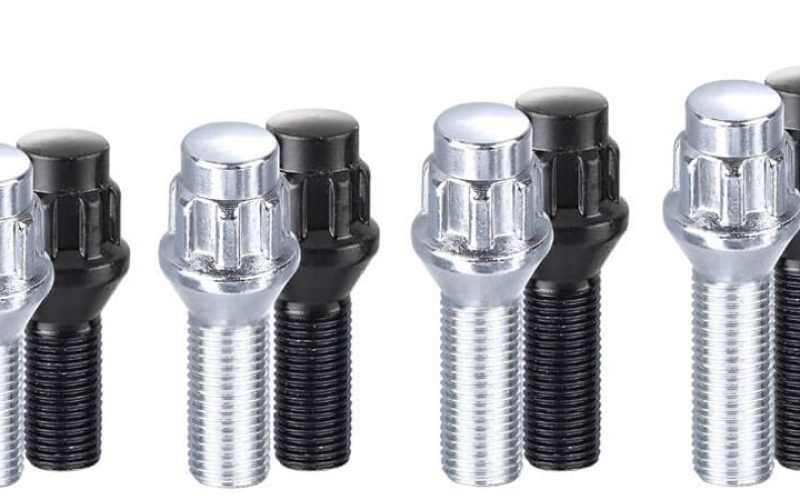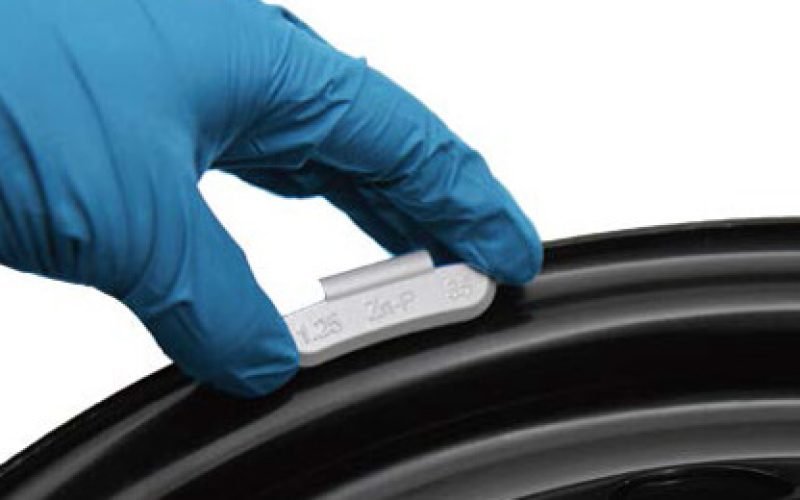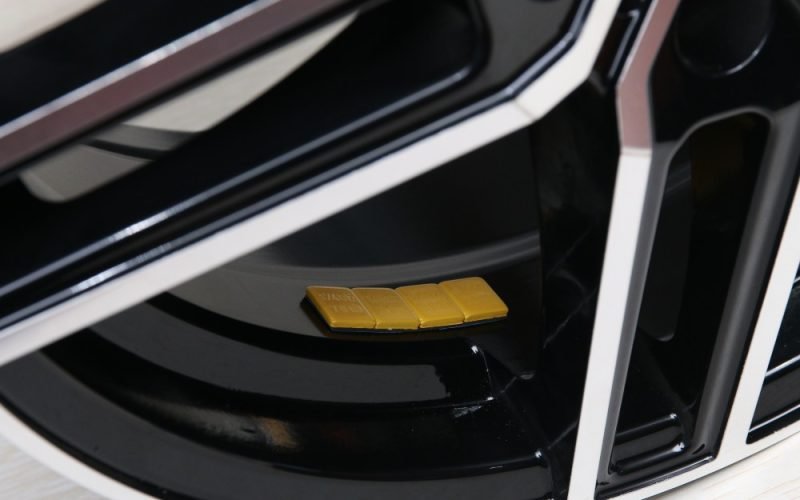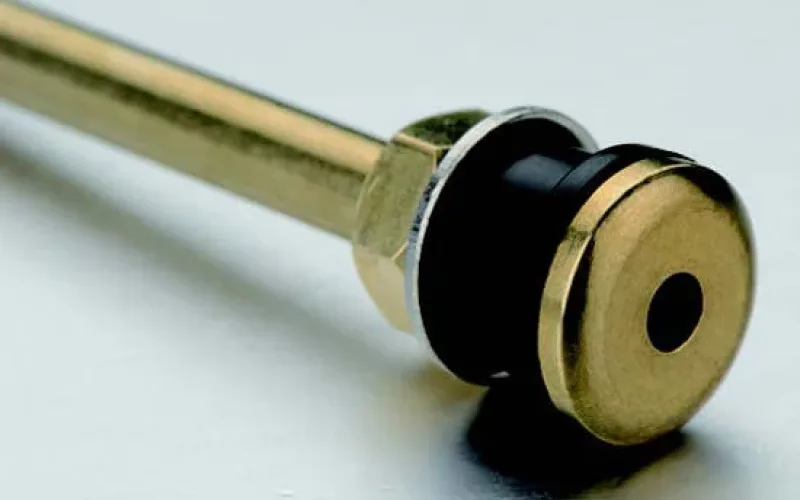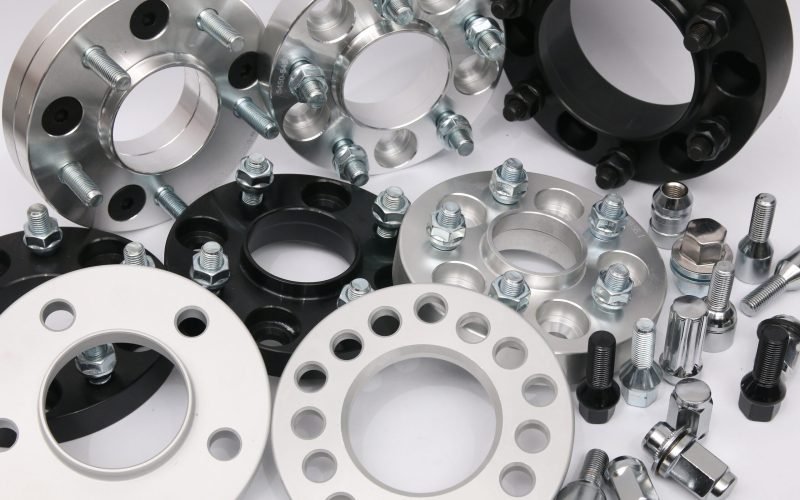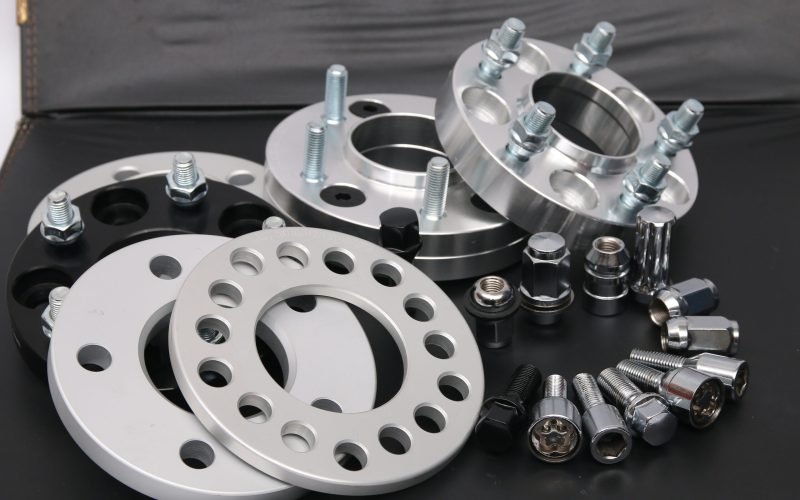

admin1
June 1, 2025
Safer Alternatives to Wheel Weights Lead Pollution

Lead wheel weights can harm the environment and human health. When these wheel weights lead fall off vehicles, they release toxic lead into the soil, water, and air. Research shows that 1.6 million pounds of lead are lost annually in the U.S. due to detached wheel weights. This pollution affects ecosystems and contributes to health issues, particularly in children, where even low blood lead levels can impair IQ and attention. Safer alternatives like steel, zinc, and composite materials eliminate these risks. Companies like Fortune Auto Parts are helping you make a difference by offering eco-friendly solutions.
The Environmental Impact of Lead Wheel Weights
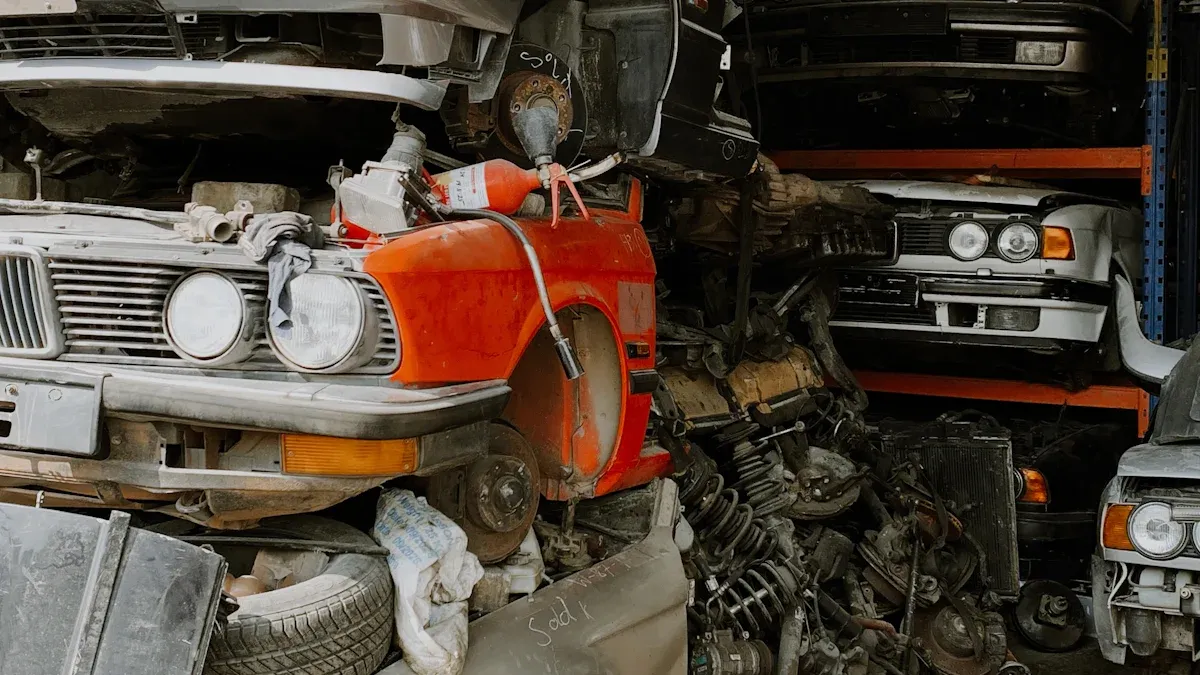
How lead wheel weights pollute soil, water, and air
Lead wheel weights often fall off vehicles and accumulate on roadsides. Over time, these weights break down into smaller particles, releasing lead into the environment. When it rains, water carries these particles into nearby soil and waterways, contaminating them with this toxic heavy metal. You may not realize it, but even the air can become polluted when vehicles grind lead weights into fine dust that gets carried by the wind.
The New Jersey Department of Environmental Protection (NJDEP) estimated that 12 metric tons of lead from wheel weights are deposited on New Jersey roads annually. This figure, based on surveys of three road types, highlights the significant contribution of lead wheel weights to environmental contamination. However, the analysis suggests that the actual contamination levels may be even higher due to limitations in the study’s scope.
This data underscores the widespread impact of lead wheel weights on the environment. By switching to safer alternatives, you can help reduce this pollution and protect natural resources.
Long-term effects on ecosystems and wildlife
Lead contamination from wheel weights doesn’t just disappear. It lingers in the soil and water, where it can harm plants, animals, and entire ecosystems. For example, plants absorb lead from contaminated soil, which then enters the food chain. Animals that consume these plants or drink polluted water can suffer from lead poisoning, affecting their growth, reproduction, and survival.
Aquatic ecosystems face similar risks. Lead particles that settle in rivers and lakes can poison fish and other aquatic life. Over time, this contamination disrupts the balance of ecosystems, leading to reduced biodiversity. You can imagine how this ripple effect impacts not just wildlife but also humans who rely on these ecosystems for food and water.
The role of lead dust in environmental contamination
Lead dust is another hidden danger of lead wheel weights. When vehicles drive over fallen weights, the friction grinds them into fine particles. These particles mix with road dust and spread through the air, eventually settling in homes, schools, and other indoor spaces. This process creates a pathway for lead to enter your daily life.
| Study Title | Focus | Findings |
|---|---|---|
| United States house dust Pb concentrations are influenced by soil, paint, and house age | National Survey | Found that house dust lead levels correlate with soil contamination, among other factors. |
| American Healthy Homes Survey II | Dust Collection Methods | Assessed lead levels in house dust using advanced sampling techniques. |
| Lead-contaminated house dust and urban children’s blood lead levels | Health Impact | Linked lead dust in homes to elevated blood lead levels in children. |
These studies reveal how lead dust contributes to indoor contamination and poses health risks, especially for children. By choosing safer alternatives to lead wheel weights, you can help reduce the spread of this harmful dust.
Health Risks of Lead Contamination
The dangers of lead exposure to human health
Lead exposure poses serious risks to your health. Even small amounts of toxic lead can harm your body. Research shows that there is no safe level of lead in the bloodstream. For children, levels as low as 3.5 µg/dL can lower intelligence and cause behavioral problems. Adults face risks too. Chronic lead exposure contributes to heart disease and cognitive decline. In 2021, lead exposure caused over 1.5 million deaths globally, with cardiovascular effects being the leading cause. It also accounted for more than 33 million years lost to disability, highlighting its impact on critical public health.
Lead accumulates in your body over time, especially in organs like the liver. Studies reveal that prolonged exposure increases the risk of metabolic diseases, such as fatty liver disease. This damage can lead to long-term health issues, making lead exposure reduction essential for protecting your well-being.
Vulnerable groups affected by lead pollution
Certain groups face higher risks from lead contamination. Children living in poverty or older housing are particularly vulnerable. Older homes often contain lead-based paint, which can flake off and contaminate the environment. Children in these settings are more likely to ingest or inhale lead particles, leading to developmental delays and learning difficulties.
Neighborhoods with older infrastructure also show disparities in lead exposure levels. Families in these areas often lack access to public health protections, increasing their risk of lead poisoning. Addressing these inequalities is crucial for safeguarding vulnerable populations and ensuring critical public health measures reach those who need them most.
Public health crises linked to lead contamination
Lead contamination has caused major public health crises. The Flint water crisis is a well-known example. In 2014, Flint switched its water supply to the Flint River, but the water wasn’t treated properly. This led to widespread lead exposure, causing a 12% drop in fertility rates and a 58% increase in fetal deaths. Children in Flint suffered from cognitive impairments and behavioral disorders due to the toxic lead in their drinking water.
Unfortunately, Flint isn’t the only case. Similar crises have occurred in cities like Washington D.C., Pittsburgh, and Newark. These incidents highlight systemic issues in water safety and the need for stronger public health protections. Funding cuts to CDC surveillance programs in 2012-2013 delayed the recognition of rising blood lead levels in children, showing how critical public health measures can prevent such disasters.
Safer Alternatives to Lead Wheel Weights
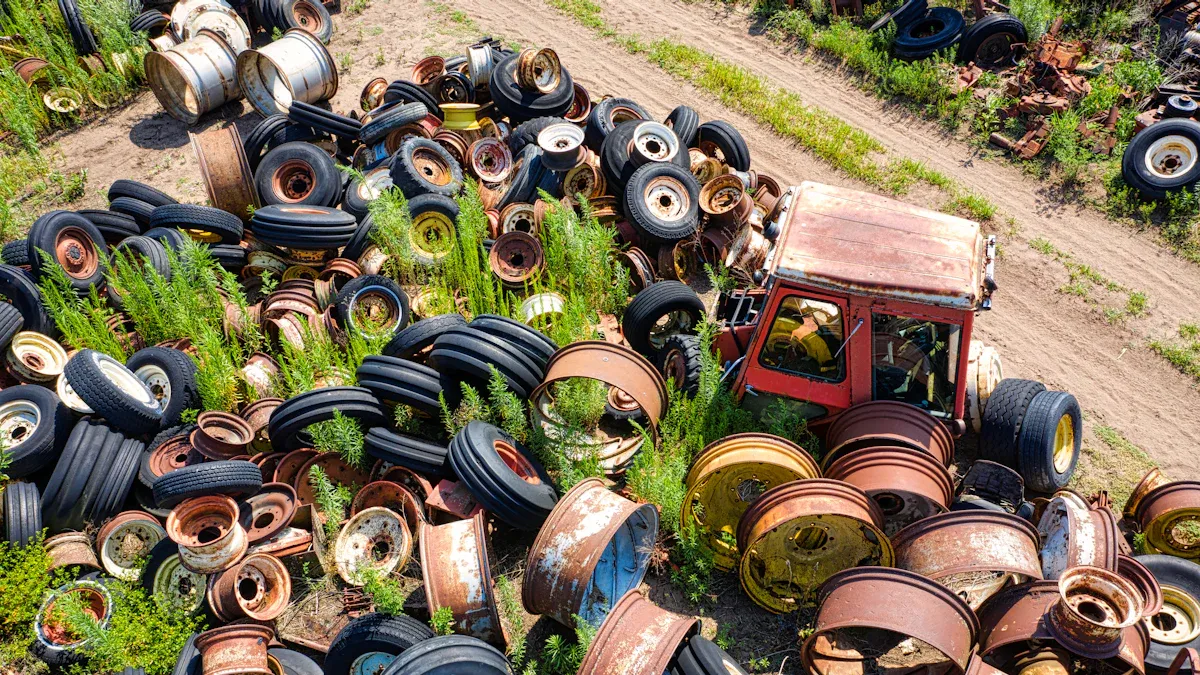
Steel: A durable and environmentally friendly option
Steel wheel weights offer a reliable and eco-friendly alternative to lead wheel weights. They are highly durable, performing well even in harsh conditions like extreme temperatures or rough terrains. This durability ensures that steel weights stay in place longer, reducing the risk of environmental contamination caused by detached weights.
Steel is also a sustainable material. It can be recycled multiple times without losing its quality, making it an excellent choice for reducing waste. By choosing steel, you contribute to a circular economy where materials are reused instead of discarded. Additionally, steel wheel weights are cost-effective, providing an affordable solution without compromising on performance.
| Advantage | Description |
|---|---|
| Cost-effectiveness | Steel wheel weights are more affordable than aluminum alternatives. |
| Durability | They perform well in challenging conditions, ensuring reliability. |
| Recyclability | Steel can be recycled multiple times without losing quality, supporting sustainability. |
Switching to steel wheel weights helps you protect the environment while maintaining the performance and affordability you need.
Zinc: Lightweight and less harmful to the environment
Zinc wheel weights provide another excellent alternative to lead wheel weights. Zinc is a lightweight material, which means it adds less weight to your vehicle. This can improve fuel efficiency and reduce emissions, making it a greener choice for your car.
Zinc is also less toxic than lead, posing fewer risks to the environment and human health. When zinc wheel weights fall off, they break down more safely in the environment compared to lead. This reduces the long-term impact on soil, water, and air quality. Additionally, zinc is recyclable, further enhancing its sustainability.
By opting for zinc wheel weights, you can enjoy the benefits of a lightweight, eco-friendly material that minimizes harm to the planet.
Composite materials: Innovative and sustainable solutions
Composite materials represent the future of wheel weights. These materials combine innovation with sustainability, offering a lead-free solution that meets modern environmental standards. Composite wheel weights are made from a mix of materials, such as polymers and fibers, designed for durability and reduced environmental impact.
Sustainability studies highlight the advantages of composite materials across various metrics:
| Metric Category | Metric Examples |
|---|---|
| Environmental Metrics | Energy consumption, waste generation, water usage, greenhouse gas emissions, Global warming potential (GWP) |
| Social Metrics | Employee safety, community engagement, supply chain labor practices |
| Economic Metrics | Resource efficiency, waste reduction cost savings, use of recycled materials |
To maximize sustainability, manufacturers of composite wheel weights focus on several key strategies:
- Implementing a circular economy approach by reusing and recycling materials.
- Designing for durability to extend the lifespan of composite weights.
- Using bio-based resins and recyclable fibers to reduce reliance on non-renewable resources.
- Optimizing manufacturing processes to minimize waste and energy consumption.
The growing demand for sustainable materials has driven innovation in composite wheel weights. These products not only reduce pollution but also align with global efforts to combat climate change. By choosing composite materials, you support cutting-edge solutions that prioritize both performance and environmental responsibility.
Industry Trends and Regulations on Lead Wheel Weights
Global bans and restrictions on lead wheel weights
Governments worldwide are taking action to reduce the environmental and health risks posed by lead wheel weights. Many countries have implemented bans or strict regulations to phase out these harmful materials. For example:
- Regulatory bodies in Europe have mandated the elimination of lead in wheel weights, setting a global standard for eco-friendly practices.
- In the United States, the Environmental Protection Agency (EPA) has encouraged self-regulation within the automotive industry to reduce lead usage.
These measures reflect growing concerns about the dangers of lead contamination. Historically, lead dominated the wheel weight market, but stricter regulations are driving a shift toward safer alternatives like steel and zinc. This transition is reshaping the industry and fostering innovation in sustainable materials.
Automotive industry adoption of eco-friendly alternatives
The automotive industry is responding to these regulatory pressures by adopting eco-friendly alternatives to lead wheel weights. Manufacturers are replacing lead with materials like steel, zinc, and composites to meet environmental standards. This shift is significant, considering that an estimated 70,000 tons of lead are used annually in wheel weights worldwide.
In Europe, the ban on lead has accelerated the adoption of safer materials. Meanwhile, in the U.S., approximately 2,000 tons of lead wheel weights fall onto roadways each year, highlighting the urgent need for change. By transitioning to eco-friendly options, automakers are not only complying with regulations but also reducing their environmental footprint.
The role of consumer awareness in driving change
You play a crucial role in driving the shift toward safer wheel weights. As consumers become more aware of the environmental and health risks associated with lead wheel weights, demand for eco-friendly alternatives is growing. This increased awareness pushes manufacturers to prioritize sustainability and innovate new solutions.
By choosing vehicles equipped with lead-free wheel weights or replacing existing weights with safer options, you contribute to a cleaner environment. Your choices send a powerful message to the industry, encouraging further adoption of sustainable practices. Together, informed consumers and responsible manufacturers can create a future free from the harmful effects of wheel weights lead pollution.
Fortune Auto Parts: A Leader in Eco-Friendly Wheel Weights
Commitment to quality and sustainability
Fortune Auto Parts has built a reputation for delivering high-quality, eco-friendly wheel weights. The company prioritizes sustainability by offering lead-free options made from durable materials like steel and zinc. These materials not only perform well but also address environmental concerns. Each product undergoes rigorous testing, including salt spray tests, to ensure corrosion resistance and reliability in harsh conditions. This commitment to quality helps you choose products that last longer while reducing environmental impact.
Fortune Auto Parts also aligns its practices with global sustainability standards. Certifications like EcoVadis and B Corp highlight the company’s dedication to ethical and sustainable operations. EcoVadis evaluates environmental, social, and governance (ESG) performance across 21 indicators, while B Corp certification emphasizes social and environmental accountability. These achievements demonstrate the company’s leadership in creating products that balance performance with responsibility.
Innovative manufacturing processes and certifications
Fortune Auto Parts employs advanced manufacturing techniques to produce eco-friendly wheel weights. The company collaborates with governments and industry leaders to develop and certify new technologies. This ensures that their products meet the highest standards of quality and sustainability. Rigorous testing and demonstration processes validate these innovations, making them market-ready and reliable for your needs.
| Key Focus Areas | Description |
|---|---|
| Collaboration with Governments | Partnerships with local and state governments drive regional economic development. |
| Testing and Demonstration | Rigorous testing ensures new technologies meet market expectations. |
| Certification of New Technologies | Certification validates innovations, facilitating their adoption in the market. |
These efforts reflect Fortune Auto Parts’ dedication to staying at the forefront of eco-friendly manufacturing. By choosing their products, you support a company that invests in innovation to protect the planet.
Global reach and customer-focused solutions
Fortune Auto Parts serves customers worldwide, ensuring that eco-friendly wheel weights are accessible to everyone. With warehouses and offices in North America and a presence in regions like Europe, Asia, and Oceania, the company provides reliable support wherever you are. Their customer-first approach ensures that your needs are met with precision and care.
The company’s global reach is matched by its focus on innovation. Fortune Auto Parts continuously introduces new automation equipment to enhance production capacity and improve technology. This allows them to deliver high-quality products efficiently, meeting the demands of both OEMs and aftermarket customers. By choosing Fortune Auto Parts, you benefit from a partner committed to sustainability, quality, and customer satisfaction.
Lead wheel weights harm both the environment and your health. Safer alternatives like steel, zinc, and composite materials provide effective solutions that are widely available.
Shao et al. demonstrated that Zn-Mg-Fe alloys are nontoxic and biodegradable, with no adverse effects on blood cells or kidney function. The consistent degradation rate highlights their reliability as eco-friendly options.
Industry trends and regulations continue to favor these alternatives. Companies like Fortune Auto Parts lead the way by offering sustainable, high-quality products. By choosing these options, you help reduce pollution and support a healthier planet.
FAQ
What are wheel weights, and why are they important?
Wheel weights balance your vehicle’s tires. They ensure even weight distribution, which reduces vibrations and improves handling. Properly balanced tires also extend tire life and enhance fuel efficiency. Without them, your ride becomes less smooth, and your tires wear unevenly.
Why should you avoid lead wheel weights?
Lead wheel weights harm the environment and your health. When they fall off, they release toxic lead into soil, water, and air. This pollution affects ecosystems and can cause serious health issues, especially in children. Safer alternatives like steel and zinc eliminate these risks.
Are eco-friendly wheel weights as effective as lead ones?
Yes, eco-friendly wheel weights perform just as well. Materials like steel, zinc, and composites provide durability and reliability. They meet industry standards for balancing tires while being safer for the environment and your health.
How can you tell if your vehicle uses lead-free wheel weights?
Check the material markings on the weights. Steel weights often have “Fe,” zinc weights may show “Zn,” and composite weights might display specific brand labels. You can also ask your mechanic or refer to your vehicle’s manual for details.
What can you do to support the use of safer wheel weights?
Choose vehicles equipped with lead-free weights or replace existing lead weights with eco-friendly options. Support companies like Fortune Auto Parts that prioritize sustainability. By making informed choices, you help reduce pollution and protect the planet.
